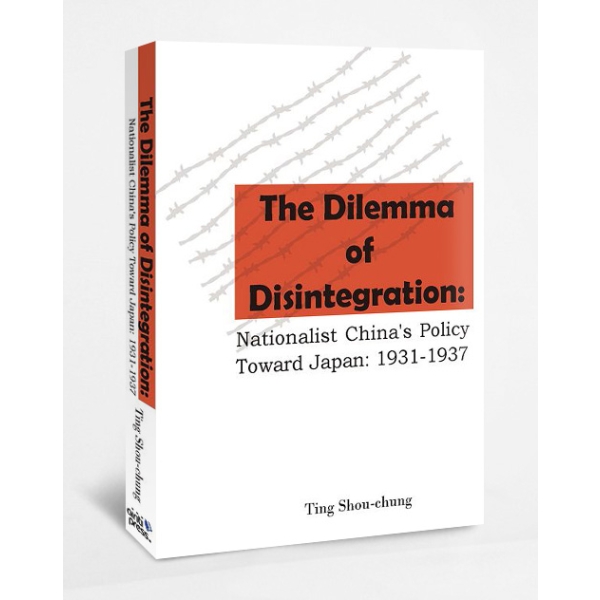The Dilemma of Disintegration: Nationalist China’s Policy Toward Japan, 1931-1937
- Home
- The Dilemma of Disintegration: Nationalist China’s Policy Toward Japan, 1931-1937
The Dilemma of Disintegration: Nationalist China’s Policy Toward Japan, 1931-1937
NT$380.00
作者:Ting Shou-Chung(丁守中)/Associate Professor, Graduate Institute of Political Science, National Taiwan University
出版日期:2012/06
語文:英文
ISBN/識別號:9789866286506
訂購連結:
This study attempts to analyze systematically the rationale, evolution, and consequences of Chiang Kai-shek's "unity before resistance" doctrine, which was the basis of Nanking's appeasement policy. The author argues that there were a number of independent variables that influenced Nanking's attitude toward Japan: 1) the internal disintegration of China; 2) factional conflicts within the Kuomintang;3) ineffective administration; 4) the vicissitudes of nationalism; 5) the material backwardness of China; and 6) international mediation. All of these factors were interrelated. The intervening variables were Chiang Kai-shek's personality, his patterns of political behavior, his way of ruling, and his perception of internal and external crises. By adopting the temporary appeasement policy toward Japan, Chiang hoped to gain enough time to consolidate China and his supreme leadership. But Chiang’s appeasement policy in fact engaged his government in two races - one with Japanese aggression and the other with domestic opposition.
Ting Shou-Chung
Ph.D. in International Politics, The Fletcher School of Law and Diplomacy, Tufts University, 1985; MALD, The Fletcher School of Law and Diplomacy, Tufts University, 1981; B.A. in Political Science, National Taiwan University, 1976
Legislator, Legislative Yuan, Republic of China, 1989 –
Associate Professor, Graduate Institute of Political Science, National Taiwan University
Chairman, National Defense Committee, Legislative Yuan, R.O.C
Chairman , Economic Committee, Legislative Yuan, R.O.C
Ph.D. in International Politics, The Fletcher School of Law and Diplomacy, Tufts University, 1985; MALD, The Fletcher School of Law and Diplomacy, Tufts University, 1981; B.A. in Political Science, National Taiwan University, 1976
Legislator, Legislative Yuan, Republic of China, 1989 –
Associate Professor, Graduate Institute of Political Science, National Taiwan University
Chairman, National Defense Committee, Legislative Yuan, R.O.C
Chairman , Economic Committee, Legislative Yuan, R.O.C
ACKNOWLEDGEMENT
ABSTRACT
I. INTRODUCTION
II. CHIANG KAI-SHEK AS POLICY-MAKER
III. CONSTRAINTS ON NANKING’S POLICY-MAKING
IV. SOME MAJOR INCIDENTS AS CASES
V. CONCLUSION
BIBLIOGRAPHY
ABSTRACT
I. INTRODUCTION
II. CHIANG KAI-SHEK AS POLICY-MAKER
III. CONSTRAINTS ON NANKING’S POLICY-MAKING
IV. SOME MAJOR INCIDENTS AS CASES
V. CONCLUSION
BIBLIOGRAPHY
聯絡人:蕭杰如小姐
Tel : (+866-2) 2926 6006 #6218
FAX (+866-2) 2926 6016
地址 : 234 新北市永和區成功路一段80號18樓
Email: [email protected]
 简体中文
简体中文  English
English 



